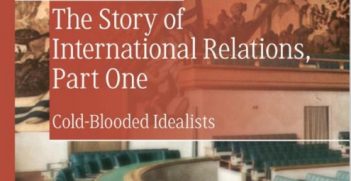Expert Panel-Fellows of the AIIA
|
 Hilary Charlesworth FAIIA-Professor, ANU; Director of Centre for International Governance and Justice Hilary Charlesworth FAIIA-Professor, ANU; Director of Centre for International Governance and Justice |
 Jocelyn Chey AM FAIIA-Visiting Professor, University of Sydney; former Consul-General in Hong Kong Jocelyn Chey AM FAIIA-Visiting Professor, University of Sydney; former Consul-General in Hong Kong |
 James Cotton FAIIA-Emeritus Professor at the University of NSW James Cotton FAIIA-Emeritus Professor at the University of NSW |
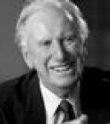 Rawdon Dalrymple AO FAIIA-Former Visiting Professor, University of Sydney; Chairman of ASEAN Focus Group Ltd Rawdon Dalrymple AO FAIIA-Former Visiting Professor, University of Sydney; Chairman of ASEAN Focus Group Ltd |
 Graeme Dobell FAIIA-Journalist Fellow, Australian Strategic Policy Institute Graeme Dobell FAIIA-Journalist Fellow, Australian Strategic Policy Institute |
 Erika Feller FAIIA-Former UNHCR Assistant High Commissioner for Protection Erika Feller FAIIA-Former UNHCR Assistant High Commissioner for Protection |
 Janet Hunt FAIIA-Former Head of the Australian Council for Overseas Aid Janet Hunt FAIIA-Former Head of the Australian Council for Overseas Aid |
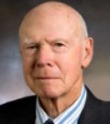 James Ingram AO FAIIA-Former Diplomat and Head of the UN World Food Program James Ingram AO FAIIA-Former Diplomat and Head of the UN World Food Program |
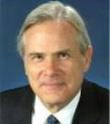 John McCarthy AO FAIIA-Former Ambassador to Japan, Indonesia, the United States, Thailand, Mexico and Vietnam John McCarthy AO FAIIA-Former Ambassador to Japan, Indonesia, the United States, Thailand, Mexico and Vietnam |
 Geoffrey Miller AO FAIIA-Former Australian Ambassador to Japan; former Director-General of the Office of National Assessments Geoffrey Miller AO FAIIA-Former Australian Ambassador to Japan; former Director-General of the Office of National Assessments |
 Robert O’Neill FAIIA– Former Chichele Professor of the History of War, Oxford University Robert O’Neill FAIIA– Former Chichele Professor of the History of War, Oxford University |
 Garry Woodard FAIIA-Former Diplomat and Senior Fellow, University of Melbourne Garry Woodard FAIIA-Former Diplomat and Senior Fellow, University of Melbourne |
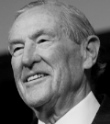 Richard Woolcott AC FAIIA-Former Secretary of the Department of Foreign Affairs and Trade Richard Woolcott AC FAIIA-Former Secretary of the Department of Foreign Affairs and Trade |
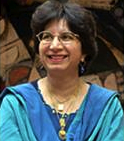 Samina Yasmeen AM FAIIA-Professor of Political Science and International Relations, University of Western Australia Samina Yasmeen AM FAIIA-Professor of Political Science and International Relations, University of Western Australia |
Question: Should Australia have nominated Kevin Rudd for UN Secretary-General?

Richard Woolcott FAIIA |
Yes. |

Rawdon Dalrymple AO FAIIA |
The Prime Minister presumably had to choose between upsetting important Coalition colleagues and upsetting Mr Rudd. In deciding not to provide governmental support, Turnbull will have to face an angry and unforgiving Rudd who will busy himself with bitter recriminations.
He will have support from the Opposition, as Mr Albanese has already made clear, even though most of them were far from happy with him when he was in office in Canberra. In fact, it is by no means clear that the deep unpopularity of Rudd at that time, amply justified by his behaviour, will be much of a factor in the dispute which he seems likely to pursue. If Turnbull decided on counter-attack there might be sufficient proxies for the task without having to take a public role himself. Perhaps the prudent course for the Prime Minister and other senior Government figures when pressed on the decision would be:
- To recall Abbott’s undertaking to support the former New Zealand prime minister who has the additional advantage of gender when there has not yet been a female secretary-general
- To emphasise the huge costs of the campaign if Rudd were to have any chance
- To note the size and strength of the field of competitors (without suggesting that Mr Rudd was not well qualified)
- Alternatively Turnbull could just abstain from any further comment and hope the heat subsides
- Whether Mr Rudd will be able to keep the matter before the public’s attention remains to be seen.
|

Erika Feller FAIIA |
Australia has been a reluctant multilateralist for many years. Amongst many manifestations of this unfortunate approach has been the absence of a strategic policy in favour of getting Australian nationals into key senior management positions in international organisations, the UN included. A suspicion about international “meddling”, a seeming strong belief that Australia has more to teach than to learn from others, and a preference for a “we do it our way” philosophy have together lead, in my experience, to a somewhat casual approach both to promoting Australians into the international system and then to maximising the benefits from having them there.This is short-sighted, and needs to change. Of course the non-support of a Rudd candidacy has many more dimensions to it, including partisan politics, personal enmities, and, yes, assessments of suitability. Externally, the UN is more than ever in need of a strong and decisive leader who can draw a line in the sand, who can say no in a way that will command respect, but who will also pull back when compromise is called for. Internally the UN is going through a significant transformation which has to be led with sensitivity, empathy and nimble, inclusive teamwork. Those who know Mr Rudd better will be able to assess whether he would have brought such attributes to the job. |

James Cotton FAIIA |
The current government has done itself little credit in refusing to offer official approval for Kevin Rudd to stand as a possible candidate for the position of United Nations secretary-general. Mr Rudd has served twice as prime minister, the position which represents the pinnacle of public office in this country. Whatever the faults of Australian political institutions, to reject their endorsement is to treat the political process with contempt.Mr Rudd’s qualifications for the position are many, not least including his powerful intellect and command of the Chinese language. To be sure, his administrative capabilities while prime minister have been the subject of considerable debate, but whatever his shortcomings the notion that a person of his capabilities would be unable to learn from his experiences is an outrageous presumption. Moreover, remembrance of prime ministerial leadership is remarkably selective. One cannot imagine that John Howard’s reputation as a sound manager of policy would survive an Australian version of the Chilcot inquiry. Longer term, the most consequential policy of Mr Howard’s government will probably be remembered as its participation in the Iraq invasion, the result of a decision which—as much from the point of view of process as of outcome—was nothing less than a disaster (not least for the 150,000 who lost their lives in the initial weeks). By contrast, the Rudd government’s most important contribution to policy was to keep Australia out of global recession. Yet Mr Howard currently enjoys the respected position of elder statesman formerly occupied by Malcolm Fraser.
The increasing pervasiveness of partisanship in all spheres of public life is a tendency which leaves Australians decidedly the poorer. Figures in the political arena would profit from a careful pondering of the generous and inclusive words spoken by Robert Menzies when he learned, on the night of 12 June 1951, that his long standing opponent, former prime minister Ben Chifley, had died suddenly.
Ultimately, it is not a national government but the institutions of the United Nations that will chose the next secretary-general. Recent occupants of the post have not had the impact of personalities such as Hammarskjöld, but the office remains important and the broadest range of possible appointees should be available as candidates. To import domestic political partisanship into these global deliberations is nothing less than petty and will certainly be perceived as such in the international community. |
[really_simple_share]
Past Questions:
February 25, 2015
Can Australia and Indonesia Be Good Friends?
October 26, 2014
Can Australia Remain a Top 20 Nation?
September 17, 2014
Should Australia Deploy Troops to Iraq?
September 9, 2014
Should Australia have Closer Relations with NATO?
July 25, 2014
Are Expectations of Australia’s International Influence Unrealistic?
July 1, 2014
Is Australia Powerless to Help its Citizens Abroad?
June 23, 2014
What are Australia’s Responsibilities in Iraq?
June 10, 2014
Is China Destabilising Asia?
May 9, 2014
Is the US a Dangerous Ally for Australia?
April 28, 2014
Did you find Bob Carr’s ‘Diary of a Foreign Minister’ enlightening?
April 14, 2014
Is Australia’s economic diplomacy succeeding?
April 04, 2014
Is Japan Australia’s best friend in Asia?
March 24, 2014
Three years on, has enough been done on Syria?
More questions >>



















